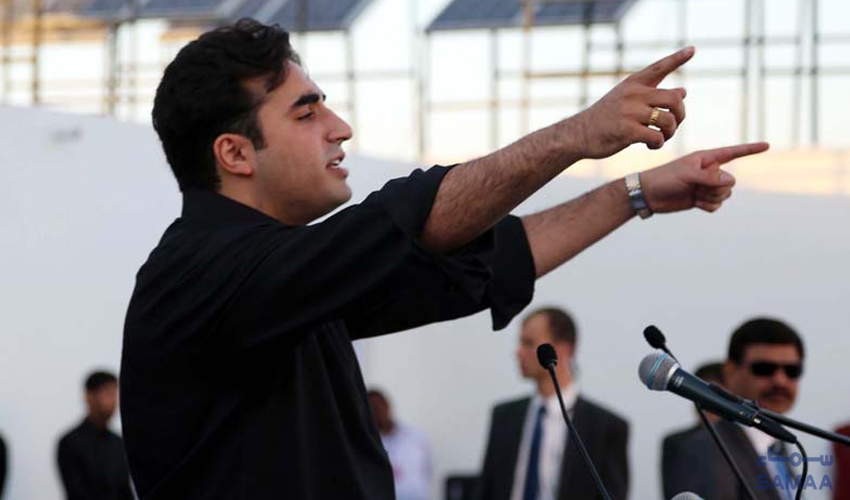Pakistan People’s Party (PPP) chairman Bilawal Bhutto Zardari while emphasizing the importance of empowering local solutions to address the prevailing challenges faced by communities, said that the “Baboos” (bureaucrats) sitting in Islamabad neither do the work themselves nor let anyone else do it.
Addressing the chairmen and mayors of local bodies from across Balochistan during the annual general meeting of the Local Council Association in in Quetta, he said that his party will form government after victory in the upcoming general elections.
Outlining the PPP’s vision for tackling the country’s electricity crisis, Bilawal promised to establish green energy parks at the district level upon forming the government after the upcoming general elections.
Bilawal pledged free electricity up to 300 units per month for impoverished families, emphasizing a commitment to alleviate the electricity shortage.
Expressing concern over the centralized governance style of Islamabad, the PPP chairman highlighted the sense of deprivation felt by various provinces, including Balochistan, Sindh, Khyber Pakhtunkhwa, and Punjab. He advocated for increased administrative and financial autonomy for local bodies, stressing the importance of decentralization.
The Bhutto-Zardari scion aimed to address the power crisis through the Green Energy Parks project, intending to generate electricity locally through public-private partnerships. These efforts aim to provide subsidized electricity to local communities, ensuring a sustainable solution to the longstanding issue of power shortages.
Recognizing the pivotal role of local body representatives, he emphasized the necessity for federal and provincial governments to collaborate with them in crafting annual budgets. He underscored the potential for collective action between governments and local bodies to resolve numerous challenges faced by the populace.
Moreover, Mr Bhutto raised concerns about Pakistan's vulnerability to the impacts of climate change, labeling it a significant challenge. He cautioned about potential future adversities if proactive measures aren't taken to address environmental concerns, urging preparedness and collective action in mitigating these potential threats.



























